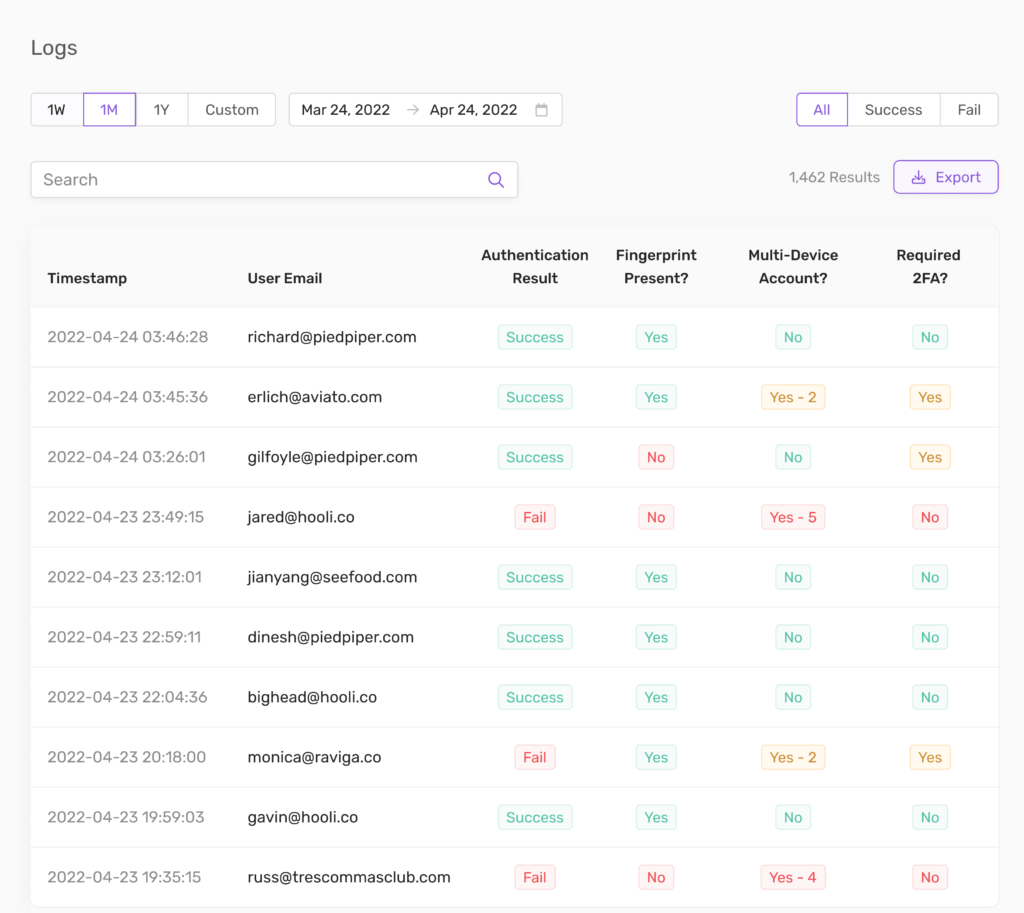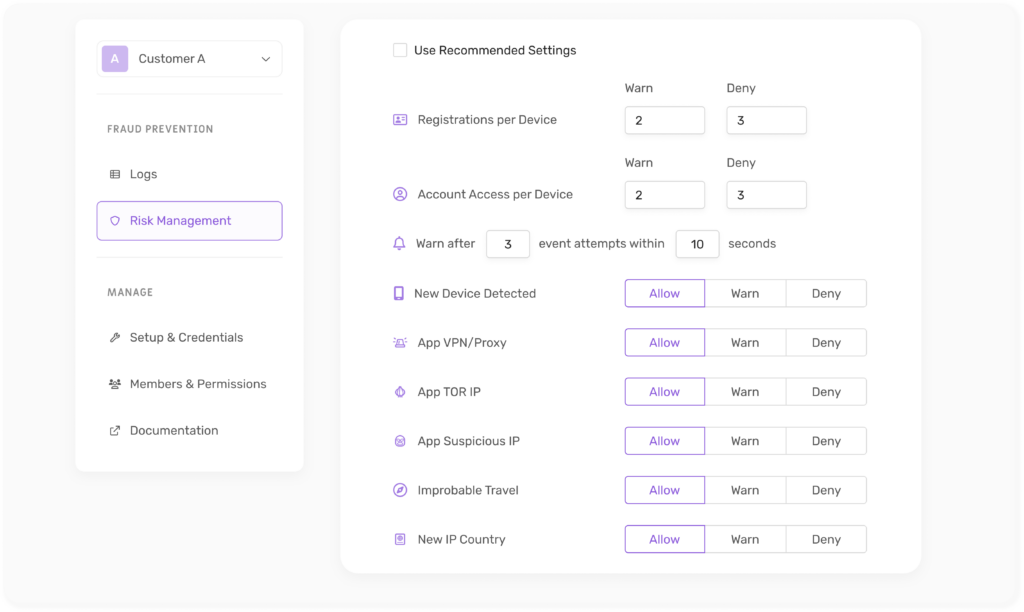Advanced fraud detection that stops bad actors in real-time
Stop fraud in minutes, starting with account opening, account takeovers, bot prevention, and promo abuse.

400+ companies use Keyri to stop fraud.
All with a few simple code snippets.
Simple setup with any mobile framework
We’ve done the hard work so you don’t have to. Keyri’s mobile SDKs offer secure cryptographic key generation, key storage, and encryption.

func registerUser(username: String) throws {
if let list = Keyri().listAssociationKey() {
if let existingUsername = list.keys.first {
// Alert user that there is an existing user, and encourage them to sign in here
}
} else {
let key = try Keyri().generateAssociationKey(username: username)
// Then run your regular registration process
// Optionally, do something else with the key that was just generated
// Keyri handles saving the key in the Secure Enclave for you
// For example, you can later use this key pair to passwordlessly authenticate the user
}
}
fun registerUser(username: String, password: String) {
val keyri = Keyri(this@MainActivity)
val keys = keyri.listUniqueAccounts()
if (keys.isNotEmpty()) {
// Alert user that there is an existing user, and encourage them to sign in here
} else {
val key = keyri.generateAssociationKey(publicUserId = username)
// Then run your regular registration process
// Optionally, do something else with the key that was just generated
// Keyri handles saving the key in the Secure Enclave for you
// For example, you can later use this key pair to passwordlessly authenticate the user
}
}
function registerUser(username: string, password: string) {
const keys = Keyri.listAssociationKey();
if (keys?.length > 0) {
// Alert user that there is an existing user, and encourage them to sign in here
} else {
const key = Keyri.generateAssociationKey(username);
// Then run your regular registration process
// Optionally, do something else with the key that was just generated
// Keyri handles saving the key in the Secure Enclave for you
// For example, you can later use this key pair to passwordlessly authenticate the user
}
}
void registerUser(String username, String password) {
Keyri keyri = Keyri()
keyri.listAssociationKey()
.then((keys) => {
if (keys.isNotEmpty()) {
// Alert user that there is an existing user, and encourage them to sign in here
} else {
String key = keyri.generateAssociationKey(username)
// Then run your regular registration process
// Optionally, do something else with the key that was just generated
// Keyri handles saving the key in the Secure Enclave for you
// For example, you can later use this key pair to passwordlessly authenticate the user
}
});
}
Bad actors are relentless
That's why the Keyri SDK ensures 1 device = 1 user

Account opening fraud
Stop bad actors from creating multiple accounts and wreaking havoc with stolen identities.

Bot attacks
Keep bots away with emulator detection that ensures all activity is on real devices.

SMS bombing
Kill SMS attacks before they start by tying each user to one mobile device and one phone number.

Free trial / promo abuse
Disable multiple account creation for purposes of taking advantage of free trials, discounts, and referrals.
Persistent, accurate intelligence
Tie users to their identities with precision.
Keyri specializes in creating unique user identifiers that persist throughout their lifecycles with extreme accuracy.


Track all user events in a single dashboard
Pick out fraudsters throughout the user journey.
From registration, to login, and subsequent verification events, visualize your users in one simple dashboard and ban bad actors for good. Keyri can be used to prevent multiple account creation fraud, account takeovers, bot prevention, promo abuse, and more.
Customize risk decisions based on fraud trends
Digest in-depth user intelligence.
Keyri’s custom risk dashboard lets you choose from a robust set of risk factors so that you can choose which behaviors to allow, warn, and deny. Customize your workflows to notify your users or require step-up authentication for events that may be fraudulent. Outright deny behaviors.

